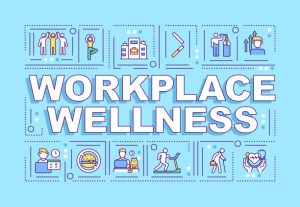
The Next big breakthrough
The four-day work week has been touted by human resources experts as the next big breakthrough in employee wellbeing and productivity. But some have dismissed the idea as potentially damaging to both the economy and employees. Many employers in Australia and across the globe have trialed the 4 day work week. Encouraged by the results, some have adopted it permanently. And on the surface, working what essentially amounts to part-time or casual employment hours seems like an attractive prospect for employees. In this article, we consider the most compelling arguments for and against the 4 day work week.
Potentially, the increased employee wellbeing could reduce the high stress workplace environments where bullying and unfair dismissals often take place. And with one day less in the working week, employees may not feel forced to resign due to burnout. But can the 4 day work week really deliver on these touted benefits? Is it practical to maintain productivity levels while reducing the number of hours worked? And could the idea be used by employers to justify the casual employment of staff?
I can’t help but think that it is a response or the by product of the lockdowns and working from home. Now that everybody has to go back to work as the pandemic enters a new phase, employees simply have got used to staying at home and want this to continue. A 4 day week is compromise towards this. It is not applicable to all work situations.

The four-day work week: Australian companies commence trials
While some have dismissed the idea of a four-day work week, a few of Australia’s leading corporates have recently signed on to it. Telstra, NIB Medibank and Grant Thornton will soon start trialing a four-day work week. These companies will join multi-national consumer goods company Unilever, which in November last year commenced a one-year trial of a four-day work week for its Australian workforce.
The trial aims to live up to the general “100:100:80” model adopted by companies who have adopted the four-day work week. This states that employees will keep 100 per cent of their salaries. This is while working 80 per cent of the time and still ensuring 100 per cent productivity.
The trial comes after Unilever ran a successful four-day work week pilot in New Zealand, which went far to dismiss the scepticism of critics. The pilot resulted in improved engagement among most staff and a 34 per cent drop in absenteeism. The company also says that employee stress levels fell by 33 per cent and work-life conflict by 67 per cent. There was also a 15 per cent rise in “feelings of strength and vigour at work.”
The New Zealand pilot has been hailed by the University of Technology, Sydney as the “most comprehensive study into flexible working arrangements to date.”

The four-day work week catches on across the globe
In 2022, more than 30 companies in Australia, the US and Ireland participated in a four-day work week pilot program in conjunction with non-profit 4 Day Week Global. Like the Unilever pilot, the program saw over 1,000 employees work essentially casual employment hours with no decrease in pay.
The pilot saw a seven per cent decrease in the stress levels of employees. This was in addition to a 24% improvement in work-life balance. And 97 per cent of employees said they would want to continue with a four-day work week following the trial. The pilot also saw the companies experience a 38 per cent rise in revenue when compared to the same six months in 2021.
A similar four-day work week trial took place in the UK last year, involving 70 companies and more than 3,300 employees. Following the trial, 97 per cent of employees wanted to keep the four-day work week. And they rated the experience 9.1 out of 10. However, 16 per cent stated that they were more stressed after the trial.
Why the four-day work week could be “damaging for jobs”
The four-day work week has clearly garnered positive results for the few companies that have adopted it so far. But some have dismissed the idea due to the effect it could have on the Australian economy. For instance, Australian Industry Group chief executive Innes Willox says that the idea “has no merit” and will be “very damaging for jobs, investment and productivity.”
The 4 day work week has been embraced by several European countries, with the governments of Scotland, Wales, Spain and Iceland all trialing the idea. And in November, the Belgian government introduced a law that gives both public and private Belgian employees the choice of working a four-day work week.
But while Europe is embracing the four-day work week, Mr Willox believes that it doesn’t make sense in Australia because “most European countries have higher rates of unemployment and lower rates of economic growth than Australia.”

Australian productivity lags behind other countries
Another reason why some have dismissed the idea of rolling out a four-day work week on a large scale in Australia is that our productivity levels lag behind that of other global economies. According to the federal government’s Productivity Commission, Australia’s “productivity performance is at best a silver standard.”
“The typical Australian worker can produce in five days what takes their United States counterpart only four days,” says the Commission’s Char Michael Brennan in its 2020 report.
Figures from the Organisation for Economic Co-operation and Development (OECD) also point to Australia’s less than stellar productivity. The nation’s employees work the fifth highest hours per capita among the 38 OECD member countries. However, Australia is ranked sixteenth for our labor productivity level (or GDP per hour worked). The award system that has been established in Australia for the last 50 odd years stymie’s productivity and limits flexibility.
Going by these figures, reducing the work week by 20% could have disastrous consequences for an economy. The Australian economy already is struggling to keep up with the productivity levels of other leading economies. Granted, the idea of the four-day work week is that employees work one day less while maintaining their previous five-day output. But is this actually realistic?

The four-day work week could just mean working longer, more stressful days
Perhaps one of the biggest arguments causing some to dismiss the idea of a four-day work week is that employees may end up working longer hours each day. Or that they will spend their day off catching up on work. This is an issue that the Australian Council of Trade Unions (ACTU) has highlighted.
“While work-life balance is a significant issue in the community, less paid work is not the answer,” ACTU assistant secretary Scott Connolly told The Sydney Morning Herald in 2020. This fear of employees working longer hours or on their day off is also shared by business experts, including Constance Hadley of Boston University.
“I worry a lot about creating even longer, more hectic days, with spill over effects on the three days off, like you spend the first half of that fifth day just recuperating and cleaning up your inbox,”
Ms Hadley in a 2022 Boston University publication.

Knock-on Effects
And there are other knock-on effects according to Ms Hadley. With one less day per week, employees may be forced to shift their meeting times. And some may take different days off from each other. This, Ms Hadley believes, “could mean longer stretches of meetings on those four days, which are also a cause of burnout and dissatisfaction.”
Another consideration is employees with disabilities. Will they be able to withstand the rigor of a 10 hour day? This could also effect working mothers with limited time and access to child care. I cannot see child care centers extending their work day without additional cost. Also to be considered is the effect on the children in a lengthier day. Also older employees who are looking to work longer don’t mind a five day week but looking for a shorter work day. Working from home article that explains matter further, click here
Will employers stay true to the promise of the four-day work week?
Another reason some dismiss the idea of the four-day work week is that employers may simply realise that productivity can be maintained or increased with less man hours. And therefore, some employees may be forced to resign as they’re deemed surplus to requirements. It may also lead to employers offering more casual employment roles rather than full-time positions.
Some employers may also not stay true to the 100:100:80 model. They may offer a four-day work week to their employees on the condition that they accept a lower salary. Or they may use the four-day work week to justify the casual employment hours and pay of current staff. In such a bold move as this there is always unintended consequences that have to be thought through. There is plenty of precedent of legislative changes that achieves the opposite intention.
Another fear is that employers may offer a four-day work week but require employers to work the same number of full-time weekly hours. This is the case with the new law in Belgium. The nation’s workers who opt for the four-day work week don’t see any reduction in their number of weekly hours.
The four-day work week: Should more Australian companies sign on?
The results of the Unilever trial seem to suggest that the four-day work week is a no-brainer. And it will be interesting to see the results of trials conducted by Telstra, NIB Medibank and Grant Thornton. However, we must keep in mind that all these companies are large corporates with the budgets and capabilities to take on the risk of trialing a four-day work week and make it work. They also largely have white-collar workforces that don’t engage in shift work.
That’s not to say that there hasn’t been a range of smaller companies to successfully trial the four-day work week. And given the positive results, it could become a central part of workplaces of the future. Where employees aren’t forced to resign due to burnout. And given that employees are happier, it could even see a decrease in bullying and the circumstances that lead employers to unfairly dismiss employees.

Conclusion to: The 4 day week: Will it actually work?
We at A Whole New Approach are Australia’s leading workplace mediators. Over the last 20 years, we’ve made the process of making an unfair dismissal claim easier. Any concerns about your workplace or its changing status ring us, its free! Your rights matter, find out what they are. We are the nations leaders in representation and commentary. All casual employee rights, redundancy concerns, adverse action, call us now
If you have been unfairly dismissed, our team can help guide you through the process of making a claim with the Fair Work Commission. And you can benefit from our no win, no fee service. Call us today for a free consultation on 1800 333 666.
Articles similar to: The 4 day week: Will it actually work?
WFH can i be forced back to the office






